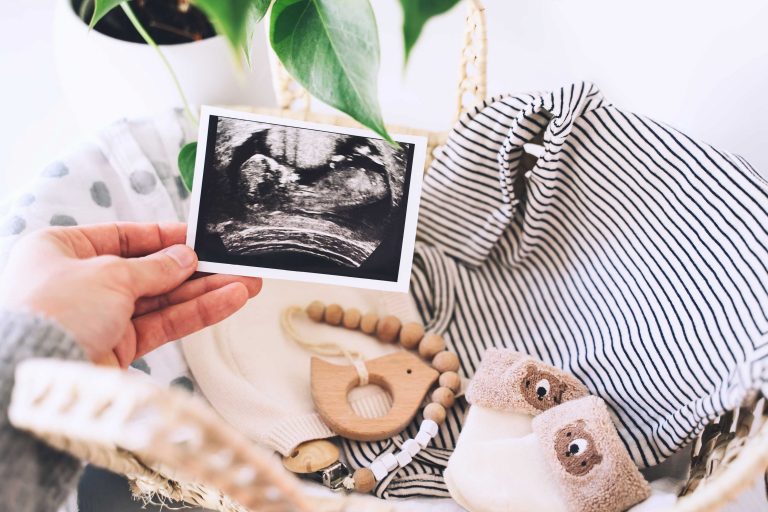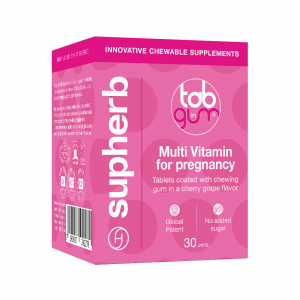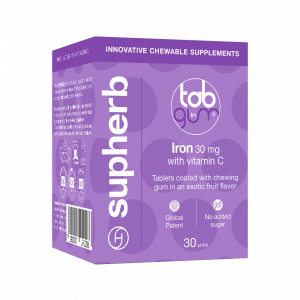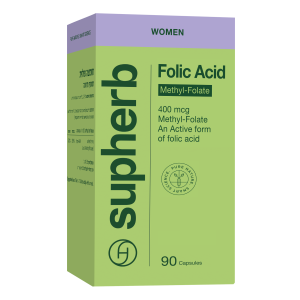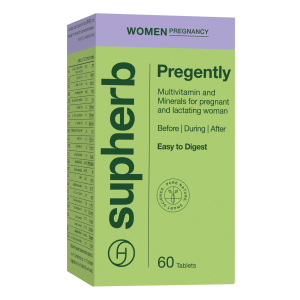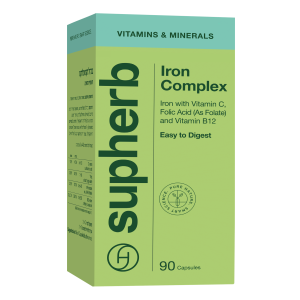- Home
- Pregnancy and postpartum
- Anemia in Pregnancy: How is it Caused and Why is It Important to Treat It?
Anemia in Pregnancy: How is it Caused and Why is It Important to Treat It?
Anemia in pregnancy is common and requires treatment in order to maintain a healthy pregnancy. What exactly is anemia and how is it caused? Why should you start your pregnancy with proper iron reserves and how can you avoid nutritional deficits during the pregnancy and keep the health of the mother and fetus? Read more here.
Anemia is an overall name for situations in which there’s a low level of hemoglobin or red blood cells that contain the hemoglobin protein. Hemoglobin is a protein with an iron core and its role is to carry the oxygen throughout the body. Decrease in hemoglobin or red blood cells will lead to a lack of oxygen and anemia.
What exactly is anemia and how is it caused? Why should you start your pregnancy with proper iron reserves and how can you avoid an iron deficiency during pregnancy and keep it healthy?
What causes anemia?
Anemia might be caused for various reasons, in most cases from nutritional deficits in the building blocks required for the body in order to create red blood cells and hemoglobin. Production deficit can be related to an iron, folic acid or vitamin B12 deficiency. Anemia can also be caused by other and many reasons that are not related to nutritional deficits.
Anemia in pregnancy – why does it happen?
The blood volume significantly increases in pregnancy until week 20. The plasma increase is greater than the red blood cells production capacity, which creates a “thinning” that then leads to a state of “physiological anemia”, or as it’s more commonly known as “anemia in pregnancy” – a situation that stabilizes later on in the pregnancy if the pregnancy is healthy, by taking the recommended supplements. It’s important to note that there’s a difference between a light anemia that appears due to increase in blood volume and ongoing more severe cases. In case the anemia worsens or is untreated, it might endanger the mother, and subsequently the fetus.
What are the typical symptoms?
Anemia will cause the appearance of symptoms such as fatigue, weakness, paleness, trouble concentrating, shortness of breath, rapid heartrate and dizziness. These symptoms can also appear in pregnancy for different reasons, which is why you should see your physician in case you have them. Please note that in some cases, anemia might occur without any symptoms, which is why it’s important to have periodical tests and take the recommended pregnancy supplements.
Highly common: iron deficiency anemia
Iron deficiency anemia is considered the leading cause of anemia in pregnancy. There’s a need for a much higher quantity of iron, due to the increase in blood volume, and in order to provide the developing fetus with everything it needs. Additionally, the fetus creates iron reserves during the pregnancy to be used in its first months of his life.
Don’t forget iron supplements during pregnancy!
According to the Ministry of Health recommendation, all pregnant women should take an iron supplement, from the end of the first trimester of the pregnancy and all the way to 6 weeks after giving birth, at a dosage of 30mg per day. The physician might recommend higher dosages of iron in cases of more severe anemia.
In addition to taking iron supplements, you should make sure to eat food that’s rich in iron, both plant and animal based. Notice! Dairy products, coffee and tea can interfere with the absorption of iron from the supplements and different foods, which is why you should separate them. On the other hand, vitamin C encourages absorption.
Why is it so important to treat anemia in pregnancy?
According to studies, iron deficiency anemia in pregnancy has to do with premature birth and low birth weight, and might damage the baby’s growth and cognitive development. According to a big study conducted in Stockholm, Sweden, and was published in the JAMA Psychiatry journal in 2019, the risk for attention deficit disorders or developmental intellectual disability grew by dozens of percentages in babies that were born to mothers who suffered from anemia and iron deficiency at the beginning of the pregnancy.
It’s important to rectify iron deficit anemia as soon as possible, so that the iron reserves in the woman’s body can be filled up and be enough for the rest of the pregnancy, the health of the mother as well as the baby. Other nutritional deficits might also cause anemia in pregnancy, such as folic acid and/or vitamin B12 deficiencies.
Folic acid in pregnancy
One of the most important vitamins during pregnancy is no other than folic acid, also known as vitamin B9. Folic acid is crucial for the proper development of the fetus as well as preventing anemia in the mother. Folic acid is one of the components that plays a role in the red blood cells production process and a lack of it causes damage to their proper production and causes anemia.
There’s an overall recommendation for women to take folic acid throughout their fertile years, meaning, taking folic acid on a daily basis, regardless of pregnancy. This recommendation derives from the importance of this vitamin to the development of the fetus’ nervous system during the various pregnancy stages.
The first weeks of the pregnancy is when the fetus develops its organs, including its brain. Folic acid deficiency might cause a defect in the neural tube, from which the fetus’ brain and spin develop. The neural tube closes in the 3-4 weeks after insemination, which is why it’s important to take folic acid supplement even before getting pregnant (3 months before) ad at least until the end of the first trimester. Taking folic acid reduces the chance for NTD – neural tube defects and there’s an advantage for taking supplements that contains the natural and active form of the vitamin (methylfolate) rather than the synthetic one (folic acid), since it doesn’t need further processing in the body.
Vitamin B12 in pregnancy
Anemia in pregnancy can also be caused by vitamin B12 deficiency, and not necessarily an iron deficiency. Vitamin B12 also plays a role in the production of red blood cells. A low level of vitamin B12 in the blood might damage the production of red blood cells and cause anemia. Despite vitamin B12 deficiency being more common in vegans and vegetarians, it might also show up in others as a result of an absorption issue, for example.
Supplements in pregnancy
It’s very important to take supplements during pregnancy to make sure there are enough ingredients for the body during this unique time. Keep up with the official recommendations by the Ministry of Health and make sure to have a healthy and versified diet. Any dietary component that is not included in your routine menu can be complemented by specific supplements designated for pregnant women. If your blood tests point to anemia, start treating it immediately, as per doctor’s orders.
There are women who fear the side effects of taking iron, for instance, preventing them from taking supplements during pregnancy. You should know that there are easily digestible iron supplements that contain iron bisglycinat that are more easily and conveniently absorbed. If you’re taking prenatal multivitamins, check the ingredients and look for a supplement that contains iron bisglycinat and ‘folate’ folic acid.





